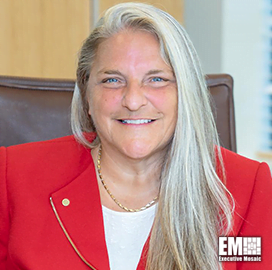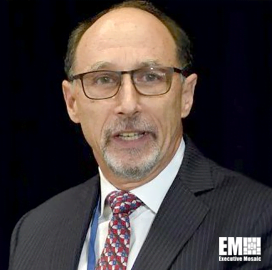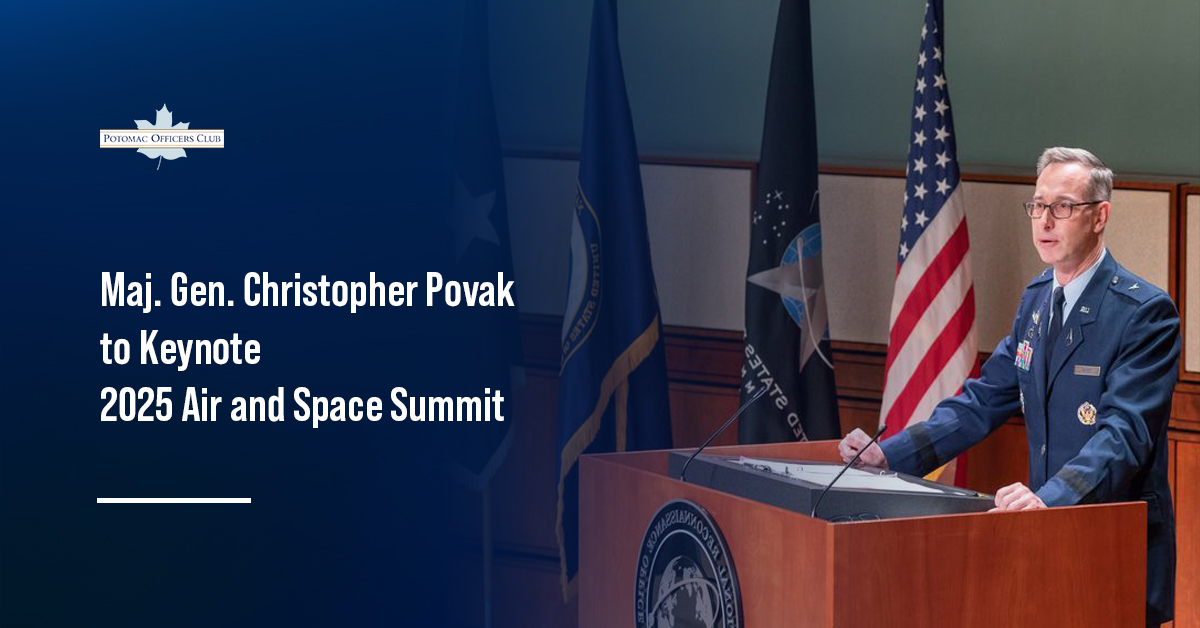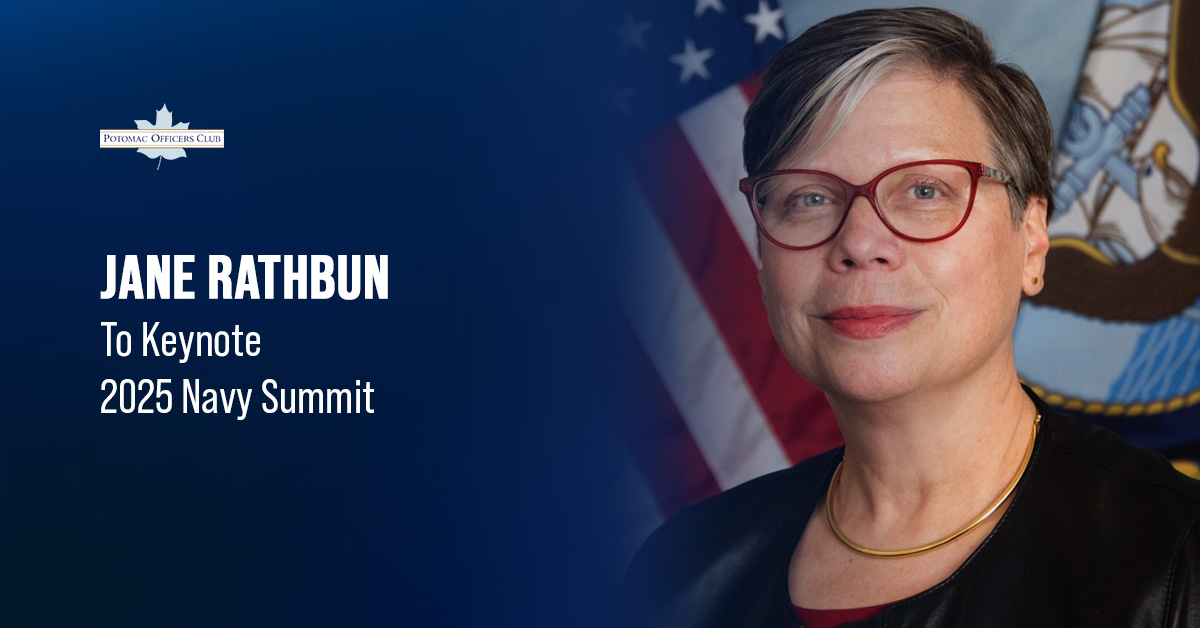
Research and development
Five GovCon Executives in Federally Funded Research and Development Centers
Federally funded research and development centers were born out of the United States’ war effort during the Second World War. The government’s research needs at the time were focused on challenges in defense, aviation and nuclear proliferation. In the modern age, FFRDCs have expanded their scope and are now influenced by the global landscape rather than solely by national conditions, according to MITRE’s primer.
FFRDCs have kept a low public profile since the Air Force founded the first one in 1947. Despite their relatively small sizes, FFRDCs help the government make important choices in technology development, policy formation, systems acquisition and integration and other vital operations.
The Potomac Officers Club — a division of Executive Mosaic — features five executives holding key roles in FFRDCs.

Health FFRDC Director
MITRE Corporation
Kimberly Warren, Vice President and Director, Health FFRDC
Kim Warren is the vice president and director of the Center for Medicare and Medicaid Services Alliance to Modernize Healthcare. Warren has served in her Health FFRDC roles since its inception in 2012 , and began her role as director in July 2020.
MITRE operates the Health FFRDC on behalf of the Department of Health and Human Services (HHS). As VP and director of the FFRDC, Warren is responsible for driving collaboration with Health FFRDC members. The Health FFRDC works to develop innovative, data-driven solutions designed for healthcare, public and population health and social services, MITRE said.
Before leading the Health FFRDC, she worked as VP of public sector programs within the corporation’s center for programs and technology. In the role, she oversaw the group’s technical activities and led the development of whole-of-government solutions tackling problems faced by the aviation and transportation, healthcare, finance and treasury and the judiciary sectors.
Earlier in her MITRE career, Warren served as chief architect for the Center for Advanced Aviation System Development. As chief architect, she was responsible for the architecture and processes involved in the organization’s aviation-focused research and development laboratory environment. She oversaw the shaping of the transportation security mission at the Federal Aviation Administration, her LinkedIn profile states.
She also helped develop research and technical capabilities at the Homeland Security Systems Engineering and Development Institute, which is operated by MITRE for the Department of Homeland Security.
The industry veteran spent several years as a software product development lead for Fortune 500 companies and international clients and previously worked as General Motors’ global director for electronic product development.
Warren is a graduate of Syracuse University with a bachelor’s degree in computer science and also holds a master’s degree in artificial intelligence from Edinburg University.

VP, Director
RAND Project AIR FORCE
Edward Harshberger, VP, Director of RAND Project AIR FORCE
Edward Harshberger is the vice president and director of RAND Project AIR FORCE, the Air Force’s only federally funded research and development center.
Harshberger leads an organization of 125 research professionals concerned with studies and analyses. PAF was founded in 1946 to retain the benefits of civilian scientific thinking shown in World War II, RAND said.
The organization’s FFRDC status facilitates stable Air Force support over an extended period of years and provides research staff access to relevant Air Force information and management personnel.
PAF has four research programs representing core capabilities: strategy and doctrine; force modernization and employment; manpower, personnel and training; and resource management.
Harshberger previously served as the director of PAF’s aerospace force development program and director of its strategy and doctrine program. He was also associate director of operations and planning within RAND’s national security research division.
Under the Intergovernmental Personnel Act, Harshberger served as special assistant to the director of modeling, simulation and analysis at the Air Force headquarters.
He spent five years as director of corporate strategic development at Northrop Grumman within the office of the CEO. In the said role, he was responsible for identifying and evaluating strategic initiatives aims at high-return growth.
Harshberger briefly served as senior director for global operations at Harman International. He oversaw the sales and operations process and outbound logistics activity.
He earned a bachelor of arts degree with honors in economics and physical chemistry from Williams College and a master’s and a doctorate in policy analysis from the Pardee RAND Graduate School.

Labs Director
Sandia National Labs
James Peery, Labs Director at Sandia National Laboratories
James Peery is a research industry veteran currently serving as the labs director at Sandia National Laboratories, a federally funded research and development center for the National Nuclear Security Administration.
Since assuming the position in January 2020, Peery has been providing guidance for the safe and secure mission execution of Sandia.
Previously, he had a two-year stint as Sandia’s vice president for defense systems and assessments, during which time he led the integration of advanced science and technology into state-of-the-art systems for the National Nuclear Security Administration and the Department of Defense, according to his organization profile.
He also served as a center director at Sandia. For five years, he was the director of the Information Systems Analysis Center, leading the development of new information technologies that enable information superiority for national security and critical infrastructure applications.
Peery also spearheaded Sandia’s research and development activities in high-performance computing as the director of the Computation, Computers, Information and Mathematics Center.
In addition to Sandia, he worked at Oak Ridge National Laboratory, where he led programs in support of the national security missions of the Department of Energy and other government agencies.
As associate lab director for national security sciences, Peery was in charge of research and development efforts aimed at preventing and countering the spread of weapons of mass destruction, providing resilience to cyber systems and advancing autonomous national security capabilities.
While at Oak Ridge, he also had a brief stint as the chief scientist for global security, according to his LinkedIn profile.
Peery holds a doctorate degree in nuclear engineering from Texas A&M University.

COO, EVP
Frederick National Lab
Kathy Terlesky, COO and EVP at Frederick National Laboratory for Cancer Research
Kathy Terlesky works for the Frederick National Laboratory for Cancer Research as its chief operating officer and executive vice president.
The Frederick National Lab is currently operated by Leidos Biomedical Research for the National Cancer Institute.
Terlesky’s duties include aligning operational strategic priorities with the lab’s scientific, clinical and public service mission. She is also responsible for ensuring the efficient operations of personnel across different departments, including human resources, contracts and acquisitions, finance, project management, public relations and internal communications, according to her LinkedIn profile.
She transitioned to the Frederick National Lab after taking on leadership roles for Leidos Biomedical Research and its parent company, Leidos.
During her seven-year stint with the research company, she served as the vice president for project management operations. Under her leadership, Leidos Biomed established an enterprise project management office to improve individual technical and project success.
She also worked briefly as the scientific program execution director at Leidos Biomed, during which time she provided interim program management for the Clinical Proteomic Tumor Analysis Consortium program.
She was also the deputy chief technology officer for Leidos. The role gave her responsibility for the technical review of programs, proposals and independent research and development efforts in biometrics, data mining, mobile forensics labs and intelligence processing.
Earlier in her career, she was a program manager at General Dynamics and a scientist at Monsanto.
Terlesky graduated from Virginia Polytechnic Institute and State University with a bachelor’s degree and a doctorate in microbiology.

Director
NBACC
George Korch, Director of the National Biodefense Analysis and Countermeasures Center
George Korch serves as the director of Battelle National Biodefense Institute’s National Biodefense Analysis and Countermeasures Center, a government biodefense research laboratory created by the Department of Homeland Security.
Based in Fort Detrick, Maryland, the NBACC is a federally funded research and development center specializing in helping identify and mitigate biological threats to national security, according to Korch’s LinkedIn profile.
Korch leads a team of scientists, technicians, professional staff, administrators, infrastructure engineers and biosafety specialists in support of the DHS’s national defense enterprise.
He was part of the creation of the NBACC in the wake of the establishment of the DHS in 2003.
Korch previously served in Fort Detrick as the commander of the U.S. Army Medical Research Institute of Infectious Diseases.
Before joining BNBI in December 2018, Korch served for several years as the science adviser to the assistant secretary of preparedness and response for the Department of Health and Human Services.
He briefly served as acting assistant secretary for preparedness and response due to the departure of a colleague from the role to the Department of Defense.
Korch holds a doctorate from the Department of Immunology and Infectious Diseases at the Johns Hopkins University Bloomberg School of Hygiene and Public Health. He is a visiting professor in the Department of Microbiology and Immunology at the said institution.
He is also a member of the American Association for the Advancement of Science, has several scientific publications and has been awarded numerous civilian and military awards and honors.
ABOUT POTOMAC OFFICERS CLUB
The Potomac Officers Club is owned and operated by Executive Mosaic. Since 2002, Executive Mosaic has been a leader in media and exclusive senior executive networking programs primarily targeted to the U.S. federal government contracting (GovCon) marketplace. In addition to connecting executives of consequence into a fabric of like minded communities, the company’s growing cross-media platform serves as a leading source of news about the people, policies, trends and events shaping the nation’s GovCon sector.

Category: Articles



